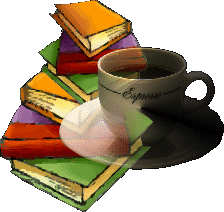
This view of Canadian & Prince George poetics comes out of discussions with Ken Belford about issues surrounding representations of place in poetry.
A while ago I made the argument that a Prince George poetics had more to do with writerly influence than any sense of landscape or geography. I argued the poetics were less about logging and more about the vicarious presence of writers like Creeley and Spicer. At the time, this didn’t seem to be a problem but now I ask, why? Why wouldn’t the land affect poetics? What about our culture renders art for the most part un-placed? Is this placelessness akin to the way communities have become interchangeable because of the proliferation of chain stores and fast food restaurants? Is it another sign of our complete self-imposed alienation from the earth? Are poetics susceptible to a dominant global economic ideology that erases difference in the face of exchange value?
On the one hand, lyric poetry has long erased the particulars of the land in favour of the pastel romanticisms and idealization needed for proper anthropomorphization. Early British-affected poetry transplanted names and descriptions from Europe over top the silenced and erased landscape underfoot. Contemporary nature writing often has no relationship with the land—it is described from a distance like painting in watercolour from a car. There is no engagement, knowledge, or vulnerability involved. The land is a thing to be aesthetically used. Nature writers become like travel writers with all the inherent traps present: generalization, stereotype, disrespect, consumption, misappropriation, etc. The ‘use’ of the land by “nature poets” is akin to our society-wide and violent ‘use’ of the land in other ways (logging, hunting, pollution, etc). It is representation that denies the land’s own subjectivity for our own pleasure/’truth’/ exploration. “Nature writing” has been around for centuries and so has the human plundering; the two are complicit. In postcolonial studies, one of things we’ve noticed is how often the colonizer romanticizes the colonized (the African, for example) and that romanticization becomes a tool in the colonizing process; the colonized is easily understood in certain safe terms and, so, controlled. Art becomes complicit with economic and military agendas. Are we doing the same when we invoke aesthetically pleasing images of nature? Belford’s alternative he has called “lan(d)guage poetry” because it enters into a dialogue with the land and explores how language has constructed “nature” for various purposes. Closed is that comforting but damaging distacne created between culture and land.
Tim Lilburn articulates this distance as a kind of unapproachable strength but his application of superlatives (“infinity”) in the passage below describing land is also a kind of containment: “Augustine speaks of that world one enters when one prays as ‘the land or region of unlikeness.’ I think everything is the region of unlikeness. Everything is distant, far, discrete, itself, non-representative, ultimately non-colonizable, wild. In its wildness it also feels like infinity, it has the unspeakability of infinity. When you encounter that you're left with courtesy; you can't name it so you bow to it, give it regard. Regard replaces language.”
Language poetry and other avant-garde writing can be post geographic in their disavowal of the referent. Poems about larger language structures and other poems do not need to have any connection to the land. These poetics are typically urban and mirror the urban desire to erase place in favour of more cosmopolitan, international, or generic designs.
There are some writers who have delved into the poetry of place in profound ways. Recently, Meredith Quartermain’s Vancouver Walking explores the urban place along personal and historical avenues. Daphne Marlatt in books like Steveston, has entered into a poetic dialogue with place. Barry McKinnon writes first and foremost about Prince George and the identity this place affords. These are all about place as urban or settled; McKinnon has very little affinity to the land outside city limits. Aritha van Herk, who is interested in cartography and narrative, wrote Places Far From Ellesmere, a book about her literary experience with the arctic island. Ken Belford writes about a land that is not urban, not even rural, but mountain and out there. Knowledgeable in the ways of the aboriginal, the Gitxan, and the intricacies of interior waterways and wildlife, Ken poetically connects land and language into “lan(d)guage poetry.” Even he, though, is connected via the internet and writes about places far from here; because of technology is afforded the ability to transcend place and write about Labrador.
The danger here is that one might assume I am advocating that ALL poetry needs to be land based somehow, that postgeographic poetics is ‘bad’ and ‘lan(d)guage’ poetics is ‘good’. Not at all. It is the dominance of the postgeographic aesthetic that I am uncomfortable with. Is the prevailing poetic placelessness healthy? Might part of ‘poetic truth’ be to decode the language of oppression we’ve come to learn when addressing “nature”? Where, exactly, am I?
Cited:
Listening with Courtesy: A Conversation with Tim Lilburn. Interview by Darryl Whetter SCL/ÉLC, Volume 22.1:1997. 135-144
http://www.lib.unb.ca/Texts/SCL/bin/getPrint.cgi?filename=lil.html&directory=Vol22_1/








